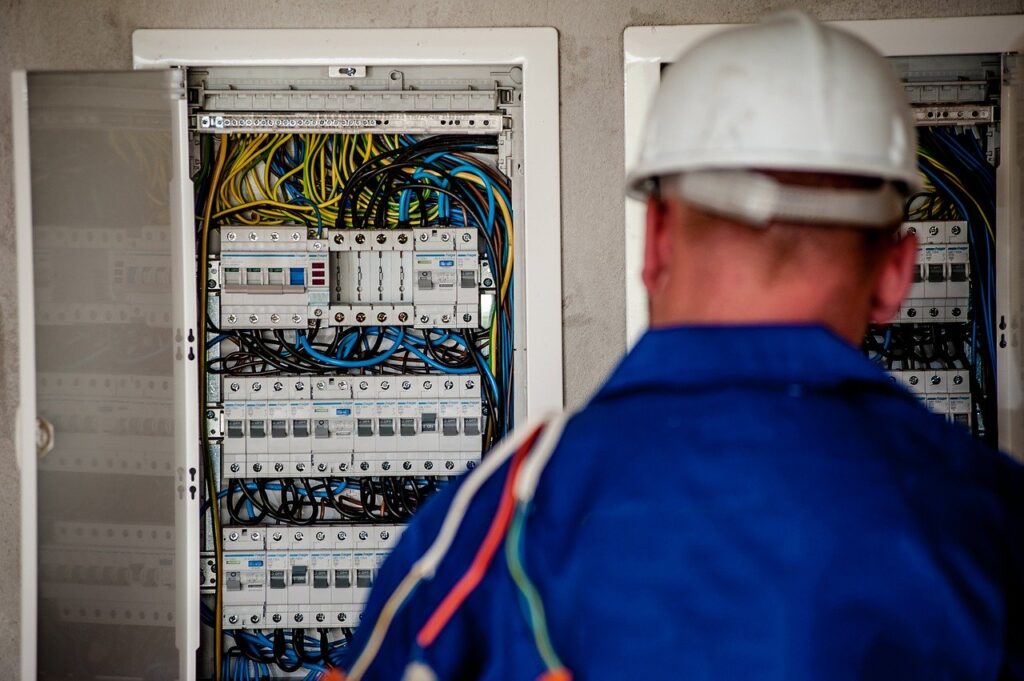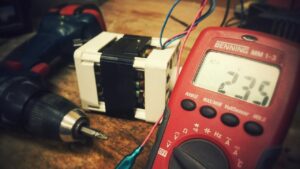To ensure the properties landlords rent out are safe and appropriate for tenants to live in, it is required by law for them to meet the standards of electrical, gas and fire safety. Electrical safety measures were updated in 2018 to minimise the risk of fires and electrical shocks within a rented property and have since been updated to further protect tenants in the UK.
These new regulations will ensure that those who have been known to bend the rules and put their tenants at risk will be penalised accordingly. These regulations are a step in the right direction to solidify the safety and security of tenants as a top priority and that housing across the UK achieves a certain standard of quality.
Landlord Electric Safety 2020
From the 1st of July 2020, the standards of electrical safety for UK landlords are changing. It is a requirement of all UK landlords that the national standards for electrical safety are complied with.
For tenants moving into a new property before the 1st of July 2020, the property must be inspected and tested before the move-in date. For pre-existing tenants already living within a rental property, an electrical inspection is required before the 1st of April 2021. These inspections are required on a five-yearly basis to maintain the appropriate electrical standard and protect the safety of tenants.
If you have undergone a recent inspection in line with the previous regulations, which is less than five years old, your Electrical Installation Condition Report (EICR) should be valid. To check whether your recent inspection is deemed valid, contact your local authority for extra support and advice.
The Responsibilities Of A Landlord
- To arrange an inspection to comply with the above regulations
- To employ a competent person to check all sockets and fittings on a regular basis, to ensure that they are safe to use
- If a rental property is partly furnished, appliances such as fridges, microwaves, TVs and toasters should be PAT tested regularly by a competent person
- A copy of the most recent EICR, detailing compliance with these regulations, should be supplied to existing, new and prospective tenants. The local authority may also request a copy of this report
- A copy of this report should also be kept to provide the inspector of a future inspection
- If any faults are discovered during an inspection, to comply with the updated regulations, repairs should be scheduled and completed by a competent person within 28 days of being discovered
- A report detailing the completion of these repairs should then be supplied to both the existing or new tenant and the local authority
- At Banner Fire, we would also suggest to ensure that at least a visual inspection takes place between tenancies for extra security
Inspections
An electrical inspection should be carried out by a qualified and competent person. When hiring or choosing an inspector, you may establish their suitability using the following methods:
- Check the Competent Person Scheme to see whether your inspector is a member
- Request your inspector to provide evidence of their experience, insurance or whether they currently hold a qualification that is in accordance with the latest legislation regarding inspection and testing. You may also require the inspector to sign a checklist certifying their competence
The requirements of an inspection only detail the testing of fixed electrical installations, fixtures and fittings but do not specify the testing of electrical appliances. It is recommended to carry out portable appliance testing regularly and supply a record of this to current tenants as good practice.
The electrical inspection will determine whether:
- Any electrical installations are overloaded
- There are any fire hazards or potential risks of electric shock
- Any electrical work is damaged or defective
- There is a lack of earthing or bonding – both of these are built into electrical installations to prevent from electric shock
If a fault or hazard is identified, the following codes will be used to determine the severity of the hazard in your EICR report and remedial work will be compulsory.
- Code 1 (C1): danger present. To prevent from the risk of injury, the electrical inspector conducting your EICR may ensure that C1 hazards are safe before leaving the property.
- Code 2 (C2): potential danger.
- Further Investigation (FI): investigation is required without delay.
- Code 3 (C3): improvement recommended. Remedial work is not a requirement but improvements are recommended to ensure the safety of the tenant. The report is satisfactory.
If an EICR report identifies a C1 or C2 hazard, then remedial work is compulsory. The installation will be deemed in the report as unsatisfactory for continued use.
If further investigative work is required, then a landlord must ensure this is carried out.
What Happens If You Don’t Comply?
- If the above requirements aren’t complied to, the council could issue a financial penalty of up to £30,000
- If a local authority believes that a landlord has not undergone the remedial work or it has not been completed to a sufficient standard, the landlord may receive a remedial notice requesting compliance
- If urgent remedial action is required and it has not been completed within the given time, the local authority may take it into their own hands to complete this at a cost to the landlord
- If tenants are refusing to allow the remedial work to be carried out, a landlord is not in breach of their duty if they can provide sufficient evidence of taking the necessary steps to carry out this work. It may also be required to supply evidence that the current installations are in good condition whilst the work is being arranged
How Can Banner Fire Help You?
At Banner Fire, ensuring landlord electric safety is one of our main concerns. It is important for the safety of yourself and your tenants that any electrical testing, including PAT testing is carried out by a qualified and competent person.
Our electricians are experienced in carrying out electrical testing in compliance with the latest legislation. If you need to ensure the safety of your electrical installations, then please get in touch today to arrange a call-back with one of our team members. Alternatively, you can contact us at sales@bannerfire.co.uk or give us a call on 01902 700620.


